Establishment
It was the year 1984, specifically May 9th, that marked the birth of the first Palestinian theatre, “El Hakawati” – “El Nuzha”. The theatre, which was then equipped with all the necessary techniques to guarantee its function, and the professional attitude to run it, was established and primed by the “El Hakawati” troupe, whose members were Franswa Abu Salem, Jackie Lubick, Edward Mu’allem, Radi Shihadeh, Ibrahim Khalayleh, and Dawoud Kattab. It is to be mentioned, nonetheless, that Ms. Fransin Jispar, Franswa Abu Salem’s mother, had quite a big role in the restoration of the theatre, and in providing artistic guidance to the troupe, being a French artist, painter, sculptor, and designer herself.
First General Assembly and First Administrative Assembly of “El Hakawati” After the opening of the theatre, a general assembly was formed, from which an administrative assembly was generated. The administrative assembly included five of the original “El Hakawati” troupe members, in addition to four other members from the general assembly members.
Amongst the personalities who contributed in the establishment of this cultural edifice, in addition to the “El Hakawati” members who were previously mentioned, are the following, alphabetically listed:
- Ms. Amal Nashashibi
- Dr. Amin Al Khatib
- Dr. Anis Al Qaq
- Mr. Bassam Shaka’a
- Mr. Jonathan Kattab
- Artist Khalil Abu Arafeh
- Artist Suliman Mansour
- Poet Samih Al Qasem
- Mr. Faisal Husseini
- Mr. Karam Khalaf
- Dr. Mamdouh Al I’ker
- Mr. Naim Tarazi
“El Hakawati” troupe managed the theatre from the year 1984 to 1989, and had more members joining the troupe after the theatre’s opening including artists, executives, and technicians, who all became “El Hakawati” – “El Nuzha” theatre members, as follows:
- Ms. Iman O’wn
- Mr. Jamal Ghosheh
- Mr. Ramzi El Sheikh Qasem
- Mr. Amer Khalil
- Mr. Imad Samara
- Mr. Imad Mitwalli
- Mr. Fateh Azzam
- Artist Mustafa Al Kurd
- Ms. Munira Shihadeh
- Mr. Hayam A’bbas
- Mr. Wael Barakat
The birth of “El Hakawati” theatre in 1984 heartened several female and male artists to rise, especially in the theatrical field. This transition marked the actual birth of a general cultural and theatrical atmosphere in Palestine, which witnessed the establishment of many theatrical groups, and an increase in the theatrical production in comparison with the early 70s and 80s, which led to a new sunrise to the theatrical movement that year, one way or another.
On the same context, “El Hakawati” hall, was and still is, the only hall that is technically equipped to host major artistic events, whether in terms of show needs or audience capacity. This was one of the main reasons the hall hosted most of the artistic, cultural, social, and political events and workshops in the city of Jerusalem, which directly affected the rise of the cultural movement in the city.
Nevertheless, the theatre has faced multiple vexations and molestations from the government of the occupation. The troupe members and the multiple administrative assemblies which have managed the theatre, up until this day, have been exposed to detention. The theatre, moreover, has faced multiple closure threats due to the social events it carries out, as the occupation claims ““El Hakawati’s” cultural and artistic work forms a stronger threat than the threat of real weapons.”
In 1989, several disagreements emerged between “El Hakawati” troupe and the members of the general assembly. One of those disagreements was the dissention between “El Hakwati’s” troupe members themselves, which led to ending the troupe’s services eventually, alienating them from the theatre, and cancelling their membership from the administrative assembly, yet, granting them the choice to maintain a status of employees in the theatre. The above events were finally followed by forming new general and administrative assemblies for the theatre.
In 1990, “El Hakawati” theatre became widely active, especially after the commencement of the international puppet festival, which started in 1991, and operated thoroughly until the year 2014.
Despite the above, it is doubtless that the theatre has worked to be the home of Palestine’s artists, especially theatrical artists, since 1990, up to present times. It has supported them through tens of local and international productions, by hosting tens of theatrical training workshops, hundreds of international shows, and by presenting hundreds of shows at several Arab and European theatres. “El Hakawati” has earned its place as the house, the theatre, and the school that we, Palestinians, learn from, and grow through, so to have a theatrical movement of our own making, our own learning, and a source for our own pride.
“El Halawati” theatre is now one of Palestine’s and Jerusalem’s historic landmarks, and the country’s cultural reference, where both Palestinian and international artists, directors, actors, musicians, and visual artists have performed.




